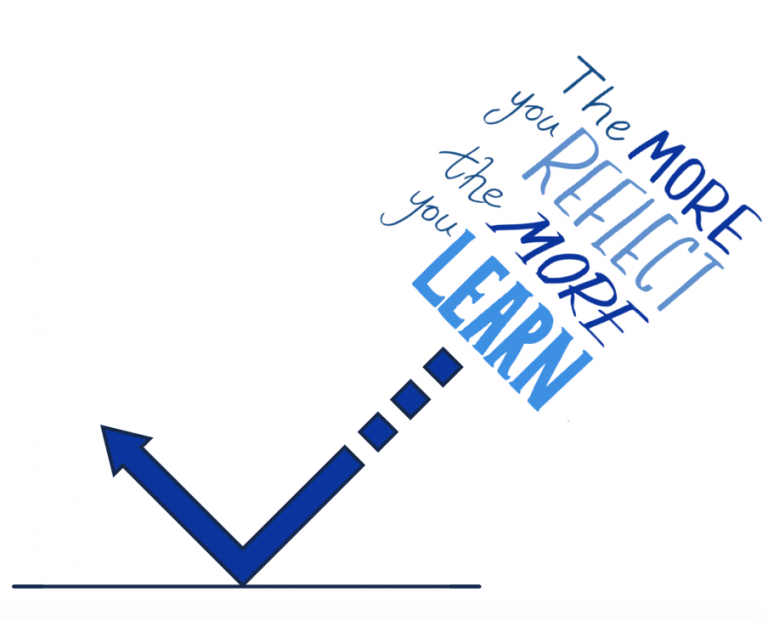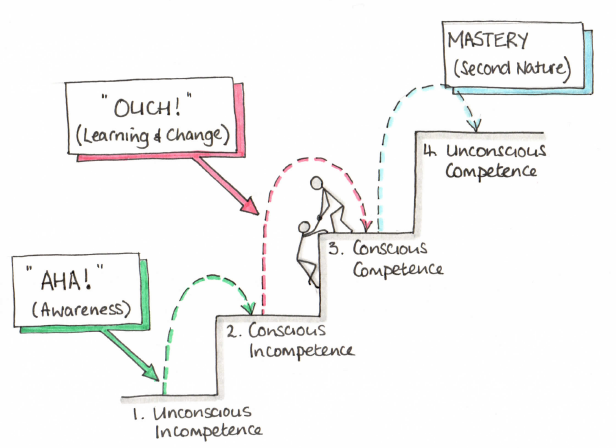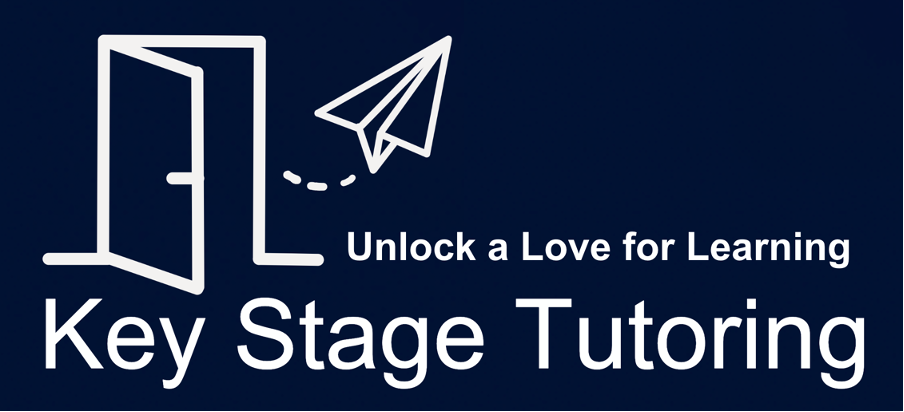
During my years of primary teaching I noticed that children often find strategies to cover up something they find tricky! Schools are increasingly teaching a wider range of academic topics and social skills within a fast-paced curriculum, and children are therefore under increasing pressure to go at the speed of their peers. Sometimes learning can become overwhelming and often children don’t like to show their emotions at school.
As a result, they bottle up their frustration and then release it in the evenings at home. This can be incredibly upsetting for a child and also for their family.
For every skill, there are four different stages of learning. The Four Stages of Learning Model – Noel Birch:
Stage One:
Unconscious Incompetence –
‘I don’t know what I don’t know’ – a child is unaware of a skill they lack (e.g. a child does not know people can communicate by writing).
Stage Two:
Conscious Incompetence –
‘ I now know about it, but I’m not very good at it’ – a child is aware of a skill but they are not yet proficient (e.g. a child knows how to hold a pencil and that letters should be formed in a certain way and linked to make words, but they are finding the process tricky).
Stage Three:
Conscious Competence –
‘I know how, but I need to think about and concentrate on what I have to do’ – a child is able to use a skill, but only with effort (e.g. a child is able to join letters together to write words, but they have to concentrate on how they are doing this).
Stage Four:
Unconscious Competence –
‘ I know and I can do it effortlessly’ – performing the skill become automatic (e.g. a child does not consciously think about how to write, they can focus on what they want to write). This is also referred as MASTERY!

Primary children have so much to learn, both socially and academically. Many of the skills they are being taught are skills we, as adults, learnt so long ago we take them for granted. We have mastered these skills, so it is very easy to forget what learning the basics must be like for a child. When it comes to academics, parents often say ‘they do it differently these days’, and quite often they are right. Explaining a concept in different ways, so a child gains a complex understanding of it and is able to apply their knowledge, rather than just following a process, is a complex task. One that not all parents feel comfortable undertaking or have the time to do themselves. When mastering a skill it is very easy to get stuck at Stage Two and sometimes, children need a little help outside of school in order to progress to Stage Three and eventually Stage Four.
As a teacher, I am able to break down skills into manageable chunks in order to help children progress through the different stages in their learning. I am able to recognise where there are gaps and help them build secure, yet flexible foundations. In my experience, once certain skills are mastered, children feel empowered and subsequently take greater enjoyment and ownership of their learning.
My aim is to unlock your child’s love for learning by boosting their confidence and Independent Thinking, and helping them achieve their goals. Anything worth learning takes effort, but the rewards are extremely exciting for both child and parent!
